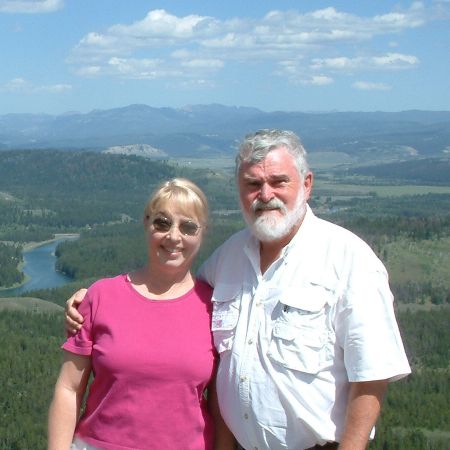The First Amendment to the Constitution of the United States of America, the very first entry in our Bill of Rights passed on March 4, 1789, reads as follows: ''Congress shall make no law respecting an establishment of religion, or prohibiting the free exercise thereof; or abridging the freedom of speech, or of the press; or the right of the people peaceably to assemble, and to petition the Government for a redress of grievances." [emphasis mine]
The current congress has no problem with most of the mainstream press, and the three major television networks; for some reason they all seem to have the same political biases and support all the socialist programs that are being foisted on what is, for the most part, a politically uneducated public. As long as the mainstream media pushes the leftist agenda, and continues their fawning love affair with the current occupant of the Oval Office, they are safe from the scorn of Democrats.
But these leftists, in Congress and in the mainstream media, cannot stand to have their policies and opinions -- their agenda -- held up to the light of day by those who oppose them or who support an alternate view. They are not content to reply and rebut the opposition; they rather do all they can to demonize people who hold views other than their own(see this posting of February 27, and especially this article from January 31).
Many people have held forth on the possibility that this congress will reprise, and the president sign, a new incarnation of the old "Fairness Doctrine" to provide direction to use of the public airwaves Nancy Pelosi and Harry Reid would have us believe that it will provide a more fair, balanced expression of opinion. Others have suggested that it will rather reduce the radio spectrum to a bland sameness that is less informative and more irrelavent to public discourse.
But few of those who have opined on the subject carry as much weight as does a member of the Supreme Court. Justice Clarence Thomas, a man who knows the depths of hatred from the political left better than most, has shared his ideas, and a column on World Net Daily today brings them to the public. The Fairness Doctrine is, says Justice Thomas, a Deep Intrusion into the rights of broadcasters:
For the first time, a U.S. Supreme Court justice is offering some legal insight about the so-called Fairness Doctrine, suggesting the off-the-books policy could be declared unconstitutional if it's revived and brought before the bench.In written discussion on yesterday's ruling cracking down on indecent language on television, Justice Clarence Thomas called the policy "problematic" and a "deep intrusion into the First Amendment rights of broadcasters."The doctrine requiring broadcasters to air opposing viewpoints on controversial issues was brought to an end in the 1980s under the direction of President Ronald Reagan's Federal Communications Commission.There has been widespread fear, though, the policy could be resurrected during the term of President Barack Obama.The Pacific Justice Institute, a California-based legal group specializing in the defense of religious freedom and other civil liberties, is calling the remarks by Thomas "very significant.""To my knowledge, this is the first time a sitting Supreme Court justice has weighed in on this issue," Matt McReynolds, a PJI staff attorney, told WND."It could potentially take a lot of steam out of the movement from those who want to bring back the Fairness Doctrine. It also provides a lot of ammo to those who have been saying it's unconstitutional. Now we have some validation from a member of the court."Thomas is questioning the viability of Supreme Court precedents dating back to the 1960s, long before the explosion of media sources beyond radio airwaves."The text of the First Amendment makes no distinctions among print, broadcast, and cable media, but we have done so," Thomas noted."It is certainly true that broadcast frequencies are scarce but it is unclear why that fact justifies content regulation of broadcasting in a way that would be intolerable if applied to the editorial process of the print media."He also noticed "the number of over-the-air broadcast stations grew from 7,411 in 1969 ... to 15,273 by the end of 2004."If Congress and the president bring the doctrine back to life, there is no doubt lawsuits will fly."We are prepared to take legal action should it be reinstated," said Brad Dacus, president of PJI. "Justice Thomas' opinion is very encouraging to everyone who believes in free speech and government non-interference with public debate."Meanwhile, as WND is also reporting today, the leader of a newly formed public awareness campaign to alert U.S. citizens about an effort to stifle free speech says he expects local "boards" will be assembled within 90 days to begin censoring talk radio, a move that will come as an "Arctic blast" against the expression of opinion in the United States."I think the FCC is on the cusp of enacting regulations that would fundamentally alter the traditional American assumption that we have the right to share and debate political opinions," said talk-show host Roger Hedgecock, whose new initiative is called "Don't Touch My Dial.""The assault on the First Amendment that is being planned by the government and the extremist Left is not limited to their desire to silence conservative talk radio," Hedgecock said."Newspapers and television are not immune to the anti-First Amendment efforts that are at work here. In addition, the Internet is also a target for receiving the restrictive aspects of the so-called 'Fairness Doctrine.'"
This assault by the left on what is one of the basic tenets of the Constitution is unconscionable, and should be opposed by Thinking People everywhere. If only the government has the right to propogate ideas, what happens to discussion? Let me suggest that those who oppose discussion of any view other than their own, do not have a view that can stand scrutiny. We should be very, very careful.


No comments:
Post a Comment